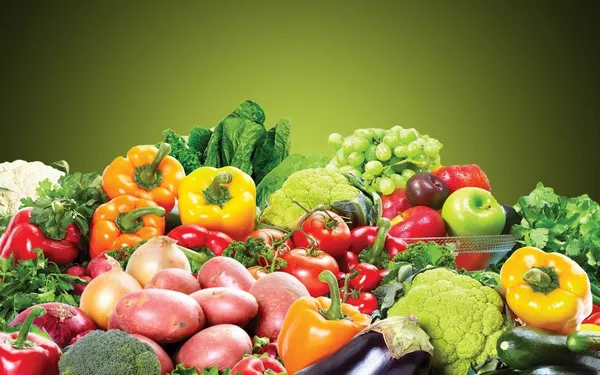Vitamins are essential organic compounds that our bodies require in small quantities to maintain various physiological functions, support growth, and promote overall health. They play a crucial role in maintaining the body’s metabolism, immune system, and various other functions. While most people are familiar with common vitamins like vitamin C and vitamin D, there are actually many different types of vitamins, each with its own unique functions and sources. In this comprehensive guide, we will explore the various types of vitamins, their roles in the body, and the food sources where you can find them.
1. Vitamin A (Retinol)
Vitamin A is essential for maintaining healthy skin, vision, and immune function. It plays a vital role in maintaining the integrity of the skin and mucous membranes. Additionally, vitamin A is crucial for night vision and the health of the eyes.
Sources: Liver, sweet potatoes, carrots, spinach, and eggs.
2. Vitamin B1 (Thiamine)
Vitamin B1 is essential for converting carbohydrates into energy and plays a vital role in nerve function and muscle contraction. It is also important for maintaining a healthy cardiovascular system.
Sources: Whole grains, pork, beans, and nuts.
3. Vitamin B2 (Riboflavin)
Vitamin B2 is involved in various metabolic processes and helps convert food into energy. It also supports healthy skin and vision.
Sources: Dairy products, lean meats, green leafy vegetables, and fortified cereals.
4. Vitamin B3 (Niacin)
Vitamin B3 is essential for DNA repair, metabolism, and the production of various hormones. It helps maintain healthy skin and is crucial for the proper functioning of the nervous system.
Sources: Meat, fish, peanuts, and whole grains.
5. Vitamin B5 (Pantothenic Acid)
Vitamin B5 is involved in the synthesis of fatty acids, amino acids, and carbohydrates. It is necessary for the production of red blood cells and helps convert food into energy.
Sources: Avocado, poultry, beans, and whole grains.
6. Vitamin B6 (Pyridoxine)
Vitamin B6 is essential for brain development, nerve function, and the metabolism of amino acids. It also plays a role in the formation of hemoglobin, which carries oxygen in the blood.
Sources: Chickpeas, salmon, potatoes, and bananas.
7. Vitamin B7 (Biotin)
Vitamin B7 is involved in the metabolism of fats, carbohydrates, and amino acids. It also plays a role in maintaining healthy hair, skin, and nails.
Sources: Eggs, nuts, and leafy greens.
8. Vitamin B9 (Folate or Folic Acid)
Vitamin B9 is crucial for DNA synthesis, cell growth, and tissue repair. It is especially important during pregnancy for fetal development.
Sources: Leafy greens, legumes, and fortified cereals.
9. Vitamin B12 (Cobalamin)
Vitamin B12 is essential for the formation of red blood cells, neurological function, and DNA synthesis. It also plays a crucial role in maintaining healthy nerves.
Sources: Meat, fish, dairy products, and fortified cereals.
10. Vitamin C (Ascorbic Acid)
Vitamin C is known for its immune-boosting properties and its role in collagen production, which is essential for healthy skin, gums, and blood vessels. It is also an antioxidant, helping to protect cells from damage.
Sources: Citrus fruits, strawberries, broccoli, and bell peppers.
11. Vitamin D (Calciferol)
Vitamin D is vital for calcium absorption, bone health, and immune function. It is unique because our bodies can produce it when exposed to sunlight.
Sources: Sunlight, fatty fish, egg yolks, and fortified dairy products.
12. Vitamin E (Tocopherol)
Vitamin E is a powerful antioxidant that helps protect cells from damage. It also plays a role in immune function and skin health.
Sources: Nuts, seeds, vegetable oils, and leafy greens.
13. Vitamin K (Phylloquinone)
Vitamin K is essential for blood clotting and bone health. It helps produce proteins that are necessary for these processes.
Sources: Leafy greens, broccoli, Brussels sprouts, and liver.
14. Vitamin P (Bioflavonoids)
Vitamin P is not a single vitamin but rather a group of bioflavonoids that have antioxidant properties and are known to strengthen blood vessels. These compounds are often found in fruits and vegetables.
Sources: Citrus fruits, berries, and onions.
15. Vitamin T (Termitin)
Vitamin T is a term used to describe substances that were once believed to be vitamins but were later found not to meet the criteria for essential vitamins. It is not considered a true vitamin.
16. Vitamin U (S-Methylmethionine)
Similar to vitamin T, vitamin U is not considered a true vitamin as it does not meet the criteria for an essential nutrient. It is sometimes used to describe S-methylmethionine, a compound found in certain foods.
It’s important to note that while these are the most well-known vitamins, there are other compounds that were once thought to be vitamins but are not considered essential nutrients. Additionally, there are various forms of each vitamin with specific functions in the body. To ensure you get a balanced intake of vitamins, maintain a diverse and healthy diet that includes a variety of fruits, vegetables, lean proteins, and whole grains. If you have specific dietary restrictions or health concerns, consider consulting a healthcare provider or registered dietitian to determine if you need any vitamin supplements.


